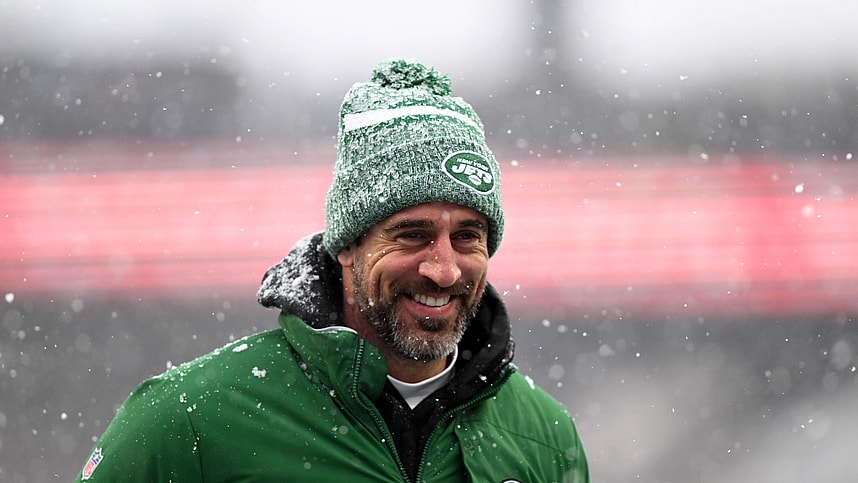
The New York Jets harbor aspirations of winning the Super Bowl in the 2024 season. However, the team’s future beyond this season remains uncertain. Star quarterback Aaron Rodgers, recovering from a torn Achilles that sidelined him for the entire 2023 season, still has two years remaining on his contract, which is set to expire in 2026. This leaves the Jets in a precarious position, especially given the underperformance of backup quarterback Zach Wilson during Rodgers’ absence.
Aaron Rodgers’ Contract and Cap Implications
Rodgers’ contract stipulates a cap hit of $17.1 million for the 2024 season and $23.5 million for 2025 when he will be 42 years old. The financial implications of Rodgers’ contract extend beyond these figures. If Joe Douglas decides to cut Rodgers in 2025, assuming his performance declines, they will incur a loss of $25.5 million in salary space due to a built-in void year for 2026.

By 2026, the Jets are projected to face a cap hit of $63 million, with accumulated prorated signing bonuses reaching a total of $70 million. This financial landscape poses significant challenges for the team’s management.
The Dak Prescott Speculation
Speculation about pivoting to Dak Prescott, the star quarterback for the Cowboys, has been circulating. Despite Lou Scataglia of the NFL Spin Zone suggesting Prescott as a potential target for the Jets, this move appears financially impractical.
Prescott is approaching the end of his contract and, following a stellar performance with 4,922 yards, 39 touchdowns, and 11 interceptions last season, is expected to command a salary exceeding $50 million per year. The Jets, constrained by Rodgers’ hefty contract, would likely find it impossible to accommodate such a high salary.
- Jets’ superstar corner praised for elite covderage in Week 1 against DK Metcalf
- Jets’ head coach has high expectations for critical defensive back
- Jets could reunite with free-agent quarterback for depth
Jets’ Strategic Moves for the Future
The more feasible strategy for the Jets involves investing in a new quarterback through the draft. This approach would allow them to develop a rookie quarterback behind Rodgers for a season. Such a transition plan would enable the Jets to maintain their roster strength while leveraging the financial benefits of a quarterback on a rookie contract. This method of team building could ensure a smooth succession and sustained competitiveness for the Jets in the coming years.
More about: New York Jets